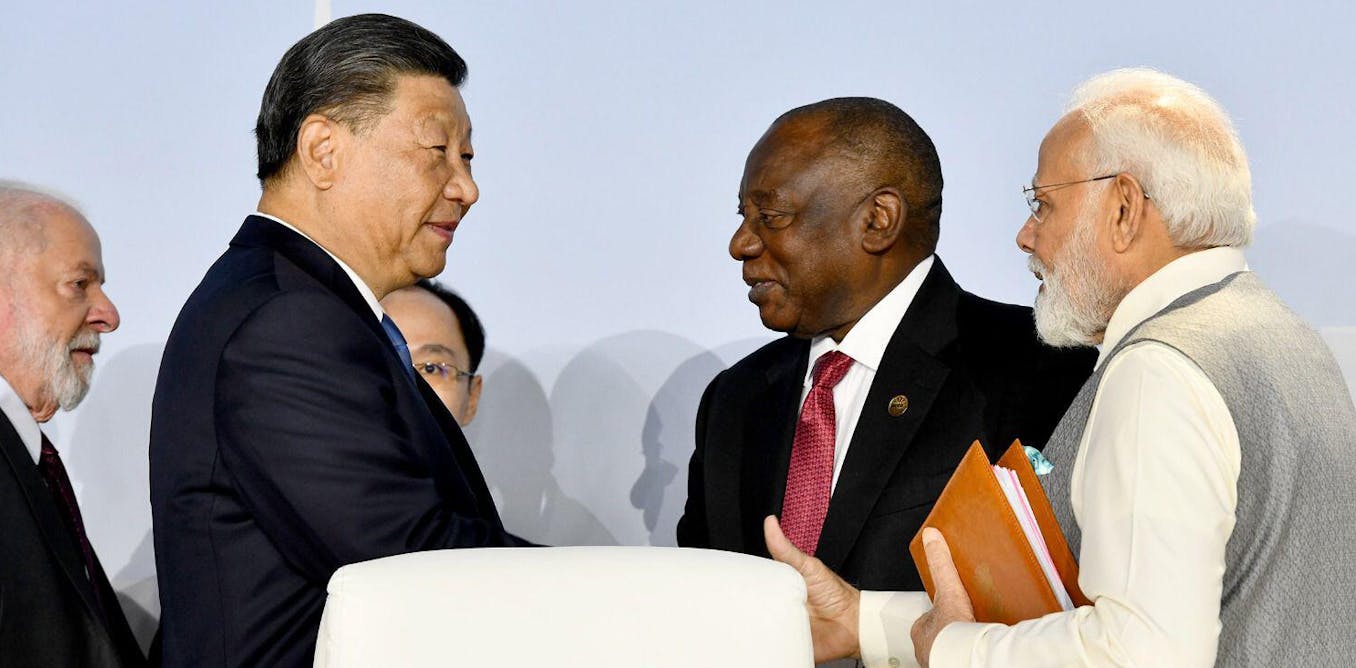China has a complex network of trade partnerships with over 200 countries, regions, and territories, and it has a trade surplus with the majority of them, including the US and India, while having deficits with major Asian economies like Taiwan, Japan, and South Korea. These trade relationships are influenced by historical, geopolitical, and strategic factors.
China's economic policy is being driven by ideology, with leaders hesitant to provide stimulus to the economy out of fear of "welfarism," according to Western experts.
China's economy is facing multiple challenges, including tech and economic sanctions from the US, structural problems, and a decline in exports, hindering its goal of becoming a top global exporter and tech power, which could have long-lasting effects on its status in international relations and the global economy.
China's economy is portrayed as irrecoverably declining in the eyes of Western mainstream media.
China is working to establish a new global oil market order by building alternatives to the West's world order, including the invitation of Saudi Arabia, Iran, and the UAE to join the BRICS political and economic grouping, which would control around 41 percent of all global oil production.
China's President Xi Jinping is shifting away from the aggressive "wolf warrior" diplomacy and positioning China as a global peacemaker, seeking alliances with the West and Asia, possibly due to economic challenges and a desire to establish more partnerships internationally.
China recognizes its economic problems and wants to improve communication and attract foreign investment, showing a shift from its usual anti-Washington rhetoric.
President Joe Biden has reiterated during his visits to India and Vietnam that his goal is not to "contain" China, but rather to strengthen relationships and ensure China plays by the rules of the international order.
China's economy has consistently outperformed other major economies in the past four years, but the US is spreading false narratives and propaganda to hide this reality, according to John Ross, former director of economic and business policy for the mayor of London. The US has two motives: discouraging foreign investment in China and influencing China's political and economic policies.
China's economic problems are more likely to impact its neighboring countries and Europe than the United States, according to U.S. Deputy Treasury Secretary Wally Adeyemo, who emphasized the need for China to address its structural economic issues.
China's economic downturn and the arrest of a senior Westminster aide for suspicion of spying highlights the need for Western countries to untangle their economies from China's control and focus on building up their own economic security.
China's growing global influence and diplomatic relations with the Middle East have led to an increased interest in Mandarin language education in countries like Saudi Arabia, UAE, Iran, and Egypt, despite declining interest in the West.
China's Foreign Minister Wang Yi emphasizes the importance of maintaining an "open attitude" and rejecting protectionism in China-EU cooperation, stating that the two sides are partners rather than rivals.
China's economic woes may not be catastrophic as its policymakers and the country's vast resources, coupled with its massive economy and global interconnectedness, offer potential for recovery despite mounting financial and geopolitical pressures.
China's economic troubles are largely attributed to their centralized planning approach, which has led to wasted resources, missed opportunities, and ineffective projects, serving as a warning for other nations considering similar strategies.
China's No. 2 diplomat stated that the U.S. must respect China's red lines, including core issues like Taiwan, in order to cooperate on global challenges such as climate change and artificial intelligence, ahead of a possible meeting between President Joe Biden and Chinese President Xi Jinping.
China is seeking to reshape the global order to align with its own interests, prompting Australia's prime minister to call on democracies to safeguard their security and prosperity.
